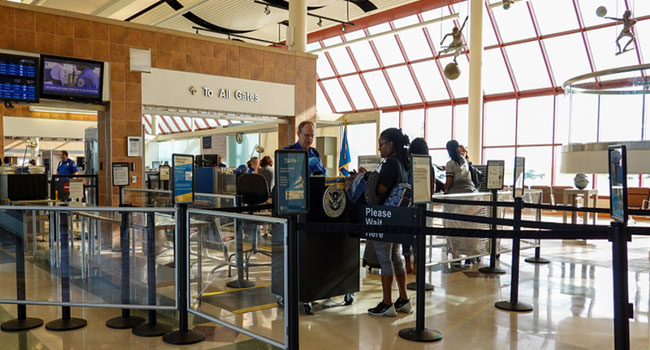
One Year Before Real ID Deadline, Americans Are Not Prepared For Airport Security Change
A majority of Americans did not know about the changing ID requirements for boarding planes in a recent survey, and DHS said that only 27 percent of residents have been issued a Real ID.
- By Haley Samsel
- Oct 02, 2019
While travelers are used to bringing their driver’s license with them to the airport, a majority of Americans are not aware that starting a year from now -- on Oct. 1, 2020 -- the only driver’s licenses that will be accepted by airport security must be Real IDs.
On Tuesday, DHS announced that only 27 percent of Americans have been issued a Real ID so far. That backs up the findings of a survey by the U.S. Travel Association, which discovered that 57 percent of Americans do not know about the changing ID requirements. Nearly 40 percent do not have a Real ID or any other forms of identification that will be accepted by the TSA.
Read More: The TSA’s guidelines on Real ID
Travelers will still be able to use passports or military IDs to board flights, but government officials are worried that the change will shock Americans as they attempt to get on a flight next fall. Only 42 percent of Americans have a passport, whereas almost 90 percent have a driver’s license, The Washington Post reported.
Real ID licenses are differentiated by a star in the upper-right corner. The new licenses are mandated by the 2005 Real ID Act, which requires states to issue IDs with features that make it harder for terrorists or criminals to replicate them.
Government agencies are trying to raise awareness of the change, but states like Virginia and Minnesota say that as few as 10 percent of residents have been issued the new IDs, according to the Post. Those statistics have security and travel industry professionals concerned about the number of people who may be turned away from flights because they lack the required identification.
“We are going from a scenario where about 90 percent of the American public has the ability to fly today using any of their identification, but all of a sudden on October 1, 2020, if that doesn’t change, we have 40 percent of the population that may not be able to fly,” Erik Hansen, vice president of government relations at the U.S. Travel Association, told the Post.
Based on the current numbers, the association estimates that more than 70,000 people could be prevented from flying on the first day that the law goes into effect. Up to half a million people could experience problems during the first week, the association found.
While raising awareness is one part of the solution, the Travel Association also wants Congress and the Department of Homeland Security, which oversees the TSA, to change the Real ID process to make it easier for states to comply. One key step: eliminating the requirement that residents have to apply for the new IDs at motor vehicle administration offices, which has caused long lines across the country and is likely to get worse as the deadline approaches.
In addition, the group wants the TSA to develop alternative screening procedures to allow passengers without a Real ID to get through security after the deadline. Travelers enrolled in TSA PreCheck, which involves an extensive background check process, should be able to get through without a Real ID, the U.S. Travel Association argues.
Only 29 percent of people surveyed by the organization said that the deadline should be enforced without exemptions. The association says that the new technology developed since the law was passed in 2005 should be part of the solution.
“We can improve secure identity without turning away hundreds of thousands or millions of people,” Hansen said.
About the Author
Haley Samsel is an Associate Content Editor for the Infrastructure Solutions Group at 1105 Media.